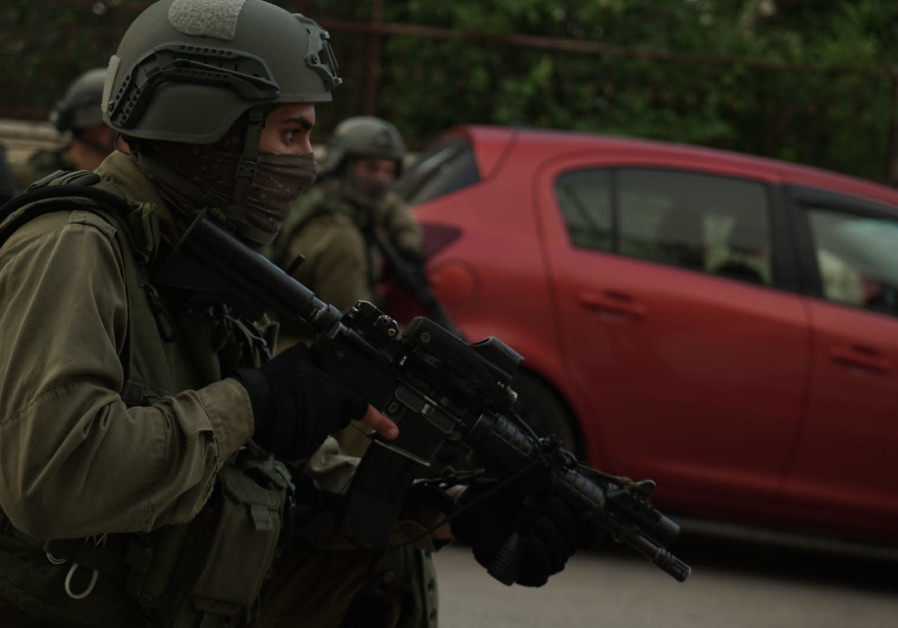Ministers approve bill outlawing filming of IDF troops

IDF soldiers during activities in the West Bank. (photo credit: IDF SPOKESPERSON’S OFFICE)
A bill that would make it illegal to distribute video or audio footage of IDF soldiers advanced in Sunday’s meeting of the Ministerial Committee on Legislation, but it will be rewritten before it is brought to a vote in Knesset committees after the Attorney-General’s office ruled it illegal.
The controversial bill, proposed by Yisrael Beytenu faction chairman Robert Ilatov, would subject violators to up to five years in prison and 10 if national security was harmed.
The legislation has been called the Elor Azaria bill, after the IDF soldier who killed a subdued Palestinian terrorist and was convicted after a video of the incident was circulated by the left-wing organization B’Tselem.
“The time has come to end this practice of left-wing organizations and activists, backed by foreign entities, having a free hand to videotape IDF soldiers while they fulfill their duty,” Ilatov said. “We have a responsibility to give our soldiers the optimal conditions for fulfilling their mission without having to worry that some left-wing organization will try to shame him.”
The bill will be brought to a vote in a preliminary reading in the Knesset Wednesday and will pass with the coalition’s support. The bill will need to be completely rewritten in Knesset committees in order to make it legal and withstand challenges in court.
B’Tselem said it would continue documenting the actions of soldiers and “no stupid law could stop it.” The New Israel Fund, which funds B’Tselem, said the legislation was aimed at muzzling watchdog groups who use video footage to document the Israeli army’s actions.
“In Israel, as elsewhere in the world, video footage of police and military activity has become an important tool for human rights groups and the media,” said NIF CEO Daniel Sokatch. “It’s part of how citizens can blow the whistle on wrongdoing by authorities. We’ve seen that from Abu Ghraib to the case of Philando Castile. Tyrants restrict the rights of people to record what happens around them; democracies don’t.”





Comments are closed.